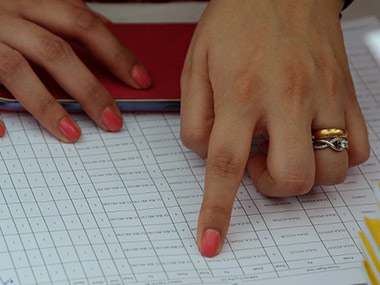The announcement of the poll schedule is generally taken in stride by most political parties. They focus on finalising alliances, seat-sharing arrangements wherever needed, candidate selection and giving the last push to their poll strategy rather than wasting time and energy in taking on the Election Commission and politicising poll dates. But this time, the Trinamool Congress and Aam Aadmi Party have taken serious exception to the dates, with later phases of the polls coinciding with the Ramzan period. Revered Islamic scholar and Imam of Lucknow Idgah Maulana Khalid Rasheed Firangi Mahali is angry that elections are being held during this period. RJD leader Shivanand Tiwari too is angry but his reasons are slightly different. He is against seven-phase elections to be held in Uttar Pradesh, Bihar and West Bengal.They believe that the Narendra Modi government at the Centre has influenced the Election Commission to announce poll dates in a manner that will benefit the ruling BJP and be detrimental to the interests of Opposition parties. The TMC, AAP and Mahali believe that since the Muslim community will be fasting (the month-long Ramzan period is expected to begin on 6 May), the percentage of voting of the community in fifth, sixth and seventh phase of the election, to be held on 6, 12 and 19 May respectively, will be substantially lower. AAP MLA and the party’s Muslim face Amanatullah Khan claims that during this period, the voting percentage of Muslims will slide down to as low as 25 percent. His charge is that this was part of a thought-out conspiracy for the election to seven parliamentary seats in Delhi, scheduled for 12 May. Khan is perceived to be very close to AAP chief and Delhi chief minister Arvind Kejriwal. It can be assumed that he is not speaking out of turn. Let us consider some facts about multi- or seven-phase elections and then analyse the overlap of poll dates with the Ramzan period and concerns for fasting members of the Muslim community. In 2004, when the NDA government led by Atal Bihari Vajpayee was in power, the Election Commission had held elections in four phases, 20 April to 10 May. In 2009, elections were held in five phases, 16 April to 13 May. But when it came to the 2014 elections, the Election Commission decided to hold parliamentary elections in nine phases. [caption id=“attachment_4400789” align=“alignleft” width=“380”] Representational image. AFP[/caption] The Congress-led UPA was in power when the elections were held. Although the conduct of elections including decisions on poll scheduling, actual polling and everything related to polls is within the exclusive domain of the Election Commission, it also remains a fact that the government of the day does have some say, through a well laid-out consultation processes, mostly relating to logistics support and security arrangements. Informal channels of communication between the commission and leadership in government also are at work on some occasions. In 2014, elections in Uttar Pradesh were held in seven phases, Bihar in six phases and West Bengal in five phases. The span of elections in 2019, in terms of number of days is almost the same as in 2014. The actual worry for the TMC, AAP and others lies somewhere else. It relates to Modi — given his credentials as a campaigner for the BJP — getting more time, spreading his reach on the ground and mobilising his party workers and influencing a larger number of voters. It would be worthwhile to narrate an experience this writer had in 2007. The dates of the Gujarat Assembly elections were about to be announced and a top Election Commission official appeared particularly bothered that that day. He told this writer in the strictest of confidence that he was under great deal of pressure from one of the most influential leaders in the then ruling party at the Centre, the Congress, to hold a two- or three-phase election in Gujarat. The EC had till then not decided whether to have a single-phase or multi-phase election, but it was inclined to have elections in the state in one go. Modi was chief minister then. Elections were then held in two phases but to the dismay of the Congress, Modi comfortably returned to power. It was the same election that saw Sonia Gandhi deliver her ‘Maut ka Saudagar’ remark against Modi that changed the second-phase poll dynamics in Gujarat. The spread of voting across nine phases in 2014 again helped Modi reach the length and breadth of the country. He also used his nomination in Varanasi as a high point in his campaign on a day when polling for one phase was under way in different parts of the nation. Another aspect to consider is the deployment of Central para-military forces. In a seven-phase election, security forces will be moving from one area to another. It is clear that the central idea behind having Uttar Pradesh, Bihar and West Bengal go for seven-phase elections is the apprehension of the panel that there could be trouble in these states and a strong deployment is needed to have free and fair polls. In that scenario, strong-arm tactics from parties like the TMC on polling days is unlikely to succeed. But what the leaders of the TMC, AAP and RJD tend to forget is that their linkage of Ramzan with voting patterns of the Muslim community tends to have a polarising effect on the majority community. If that happens, the electoral situation could turn out far more worrisome for them.
The Trinamool Congress and Aam Aadmi Party have taken serious exception to the dates, with later phases of the polls coinciding with the Ramzan period
Advertisement
End of Article


)
)
)
)
)
)
)
)
)



